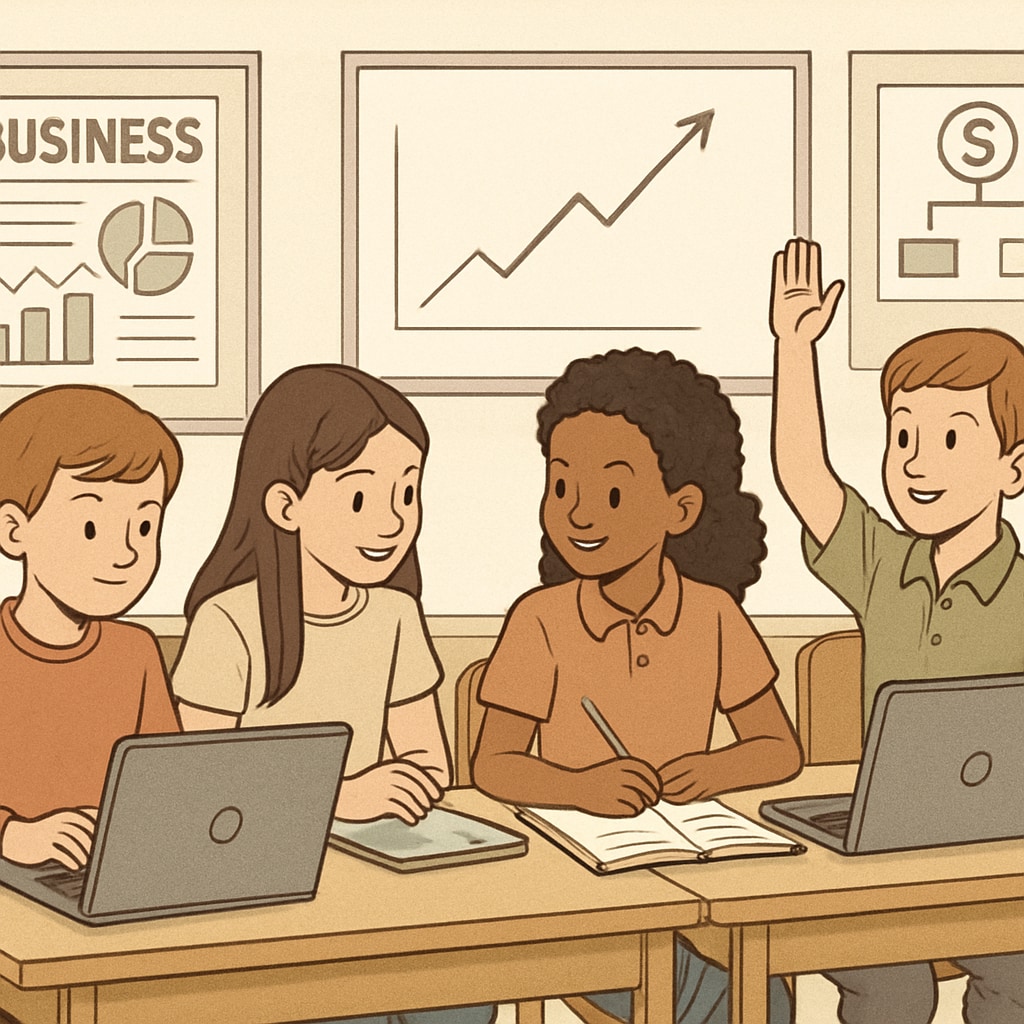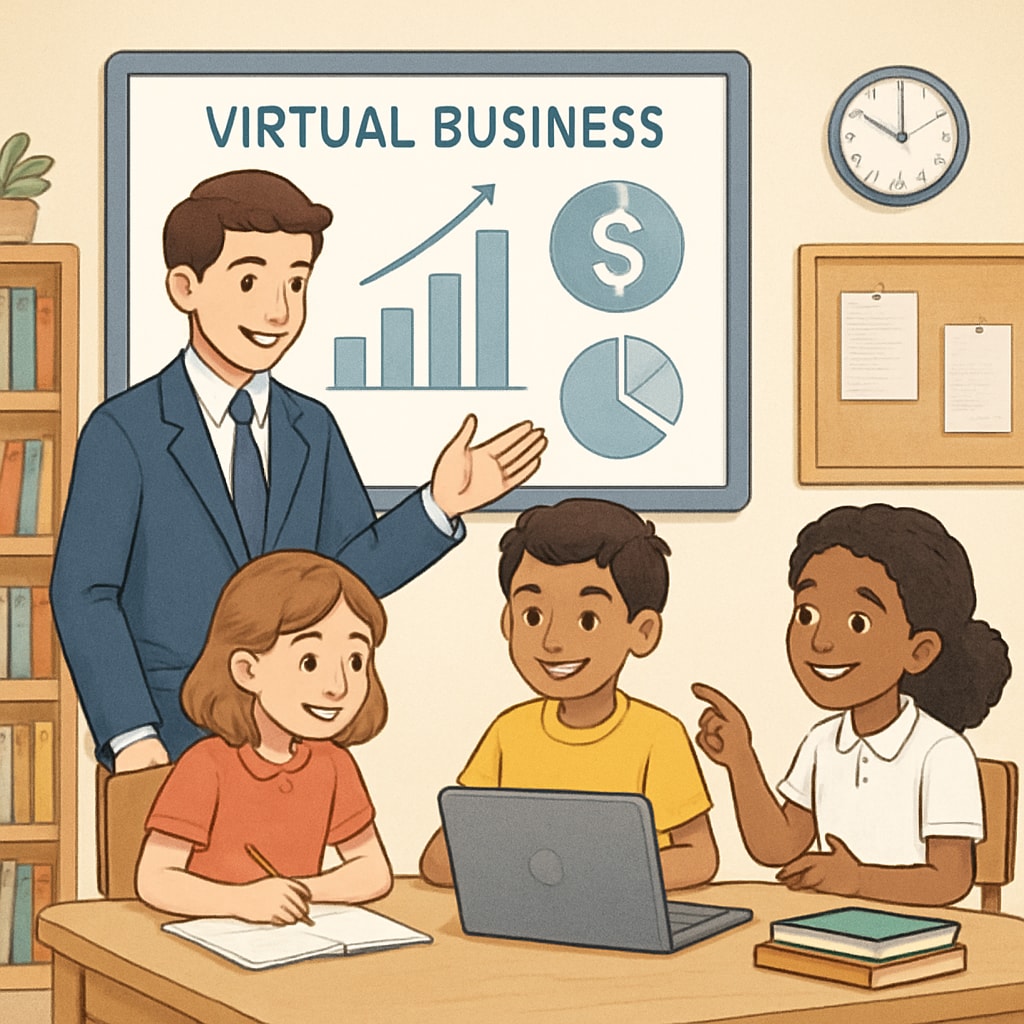Free business courses for 8-14-year-olds are opening up new horizons in youth education, addressing the lack of entrepreneurial learning in traditional K12 systems. A nonprofit organization, founded by high school students, is providing these virtual courses to equip young learners with creativity, critical thinking, and financial literacy—essential skills for thriving in today’s world. This initiative not only introduces children to the fundamentals of business but also empowers them to think like future entrepreneurs.
Why Business Education Matters for Young Learners
Entrepreneurship isn’t just about starting a business; it’s a mindset that encourages problem-solving, innovation, and adaptability. These are critical skills for the 21st century, and yet, most primary and middle school curriculums lack structured business education. For children aged 8-14, this is a golden period of cognitive and emotional development. At this stage, they are curious, imaginative, and open to new ideas—qualities that align perfectly with entrepreneurial thinking.
Involving young learners in business education can:
- Foster creativity by encouraging them to brainstorm and test ideas.
- Develop critical thinking skills by analyzing real-world challenges and solutions.
- Introduce financial literacy, teaching them the importance of budgeting, saving, and investing.
By engaging with these concepts early, children gain a head start in understanding how businesses operate and how to turn their ideas into actionable plans.

How Virtual Business Courses Bridge the Gap
Traditional K12 education often prioritizes subjects like math, science, and language arts, leaving little or no room for business education. This is where virtual courses step in, offering a flexible, accessible, and engaging platform for young learners. The nonprofit organization behind this initiative has designed its curriculum to be both age-appropriate and impactful.
The courses typically cover:
- Basic business principles, such as supply and demand, marketing, and sales.
- Hands-on projects, like creating a simple business plan or designing a product.
- Interactive sessions with mentors, who are often young entrepreneurs themselves.
This peer-led approach makes the learning experience relatable and inspiring for participants. By using virtual platforms, the program eliminates geographical barriers, ensuring that children from diverse backgrounds can benefit.

The Long-Term Impact of Early Business Education
Investing in entrepreneurial education at an early age has far-reaching benefits. Children who develop business skills early are more likely to grow into confident, resourceful, and independent adults. They learn to view challenges as opportunities and are better equipped to adapt to the ever-changing job market.
For example, introducing financial literacy to young learners helps them understand the value of money, enabling smarter financial decisions in adulthood. Similarly, fostering creativity and critical thinking prepares them to tackle complex problems, whether they pursue entrepreneurship or work in other fields.
Moreover, programs like these also contribute to societal development. By encouraging diversity in entrepreneurship, they bring fresh perspectives to the business world, driving innovation and inclusivity.
To learn more about the importance of entrepreneurship in education, check out these resources:
Entrepreneurship on Wikipedia and Entrepreneurship on Britannica.
Conclusion: Empowering the Next Generation
The future of business lies in the hands of today’s youth, and initiatives like free virtual business courses are an essential step toward preparing them for success. By introducing 8-14-year-olds to entrepreneurship, creativity, and financial literacy, we’re not only filling a crucial gap in education but also inspiring the next generation of innovators and leaders.
Whether they grow up to launch their own startups or apply entrepreneurial thinking in other fields, these young learners are gaining tools that will serve them for a lifetime. The earlier we invest in their education, the brighter their future—and ours—becomes.
Readability guidance: This article employs short paragraphs, uses lists to summarize key points, and includes a balanced mix of transition words. Passive voice and long sentences are kept to a minimum for clarity and engagement.


